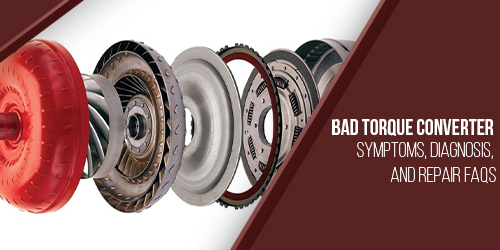A torque converter is a fluid coupling that transfers torque from the engine to the gearbox.
Torque converter problems are sometimes misinterpreted as a symptom of gearbox failure. Unfortunately, this can lead people to think that when the cost of replacing a malfunctioning torque converter is much cheaper, they need to spend thousands of dollars to rebuild or replace their automatic transmission.
Your local auto repair shop will be able to determine if the problem is with the transmission itself or with the torque converter. Finding a reputable store is very important because, as we mentioned, the symptoms can be very similar and the cost of replacing the gearbox is much higher. However, diagnosing the cause of transmission problems is not easy. In many cases, the torque converter is not actually the source of the problem.
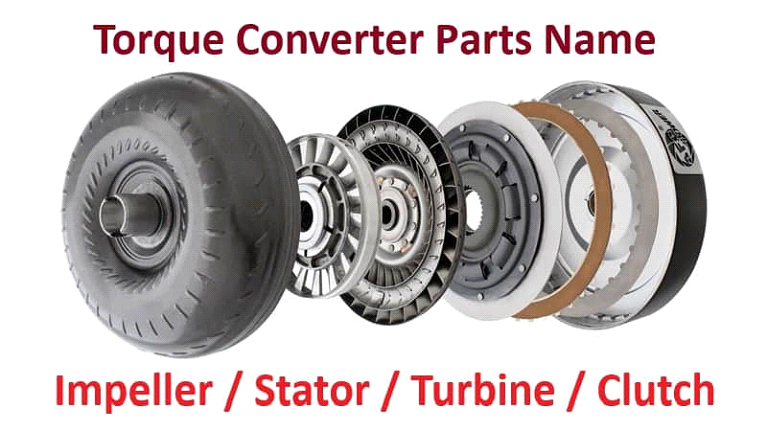
The purpose of this guide is just to help you narrow down opportunities and educate yourself before they review your broadcast. What is the function of the torque converter? In short, a torque converter is a fluid coupling that transfers torque from the engine to the gearbox. It is installed between the engine and the gearbox and is directly bolted to a “flexible plate” to rotate the crankshaft.
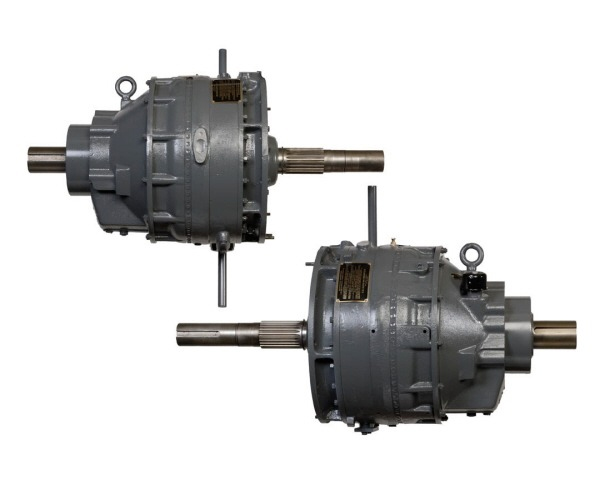
How do I know that the torque converter is broken?
Well, if your gearbox goes out of gear, this may be a symptom of a damaged torque converter. This usually happens when you shift gears and the transmission is automatically put in neutral. In addition, sounds like shaking, rattling, buzzing, and buzzing are rarely good news. These may be signs of a problem with your torque converter. Your transmission is easy to get hot, but heat is also the enemy of transmission. Overheating is a problem that affects many transmissions and can be caused by a faulty torque converter. High stall speed is also a symptom of torque converter failure. The problem with all these symptoms, however, is that long before you notice any of them, your torque converter may have a problem.
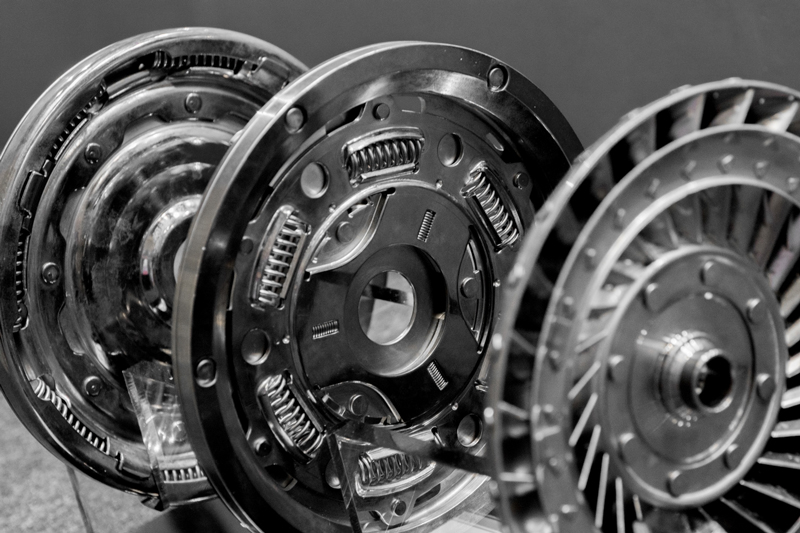
This is why monthly inspections of the delivery fluid are essential to maintain healthy delivery. Dirty transmission fluid, that is, turbid or odorous transmission fluid, may be a sign of torque converter failure. What is the cause of torque converter failure? But what are some of the causes of all the above symptoms that cause torque converter failure? Many problems can be caused by excessive friction, which usually indicates that the needle bearings in the torque converter are damaged. A defective seal is also a major suspect. They cause the liquid to seep out and become contaminated. Clutch solenoid valve failure is also a common cause of torque converter failure.
Signs of a torque converter problem
It is not easy to isolate and diagnose a torque converter problem without disassembling the gearbox/power system, but there are several symptoms to look for. Some signs of torque converter failure include: shaking, contaminated fluid, gear shifting at high speeds, and strange sounds such as clicks or hums.
Slip
Because the torque converter is responsible for converting the engine torque into the hydraulic pressure required for the gear change in the gearbox, damaged fins or bearings will cause the gearbox to shift gears or stall. Slippage can also be caused by insufficient or excessive fluid in the gearbox. You may also experience a loss of acceleration and a significant reduction in vehicle fuel economy. Before driving your car to the shop, be sure to check the fluid level.
Overheating
If the thermometer shows that your car is overheating, it may indicate a drop in fluid pressure and a problem with your torque converter. If the converter overheats, it will not be able to transfer power from the motor to the gearbox. This can lead to poor throttle response and excessive wear and tear on the gearbox’s inner workings. Low fluid level or solenoid valve failure can also cause the gearbox to overheat.

Shaking
If the lockup clutch in the torque converter starts to malfunction, it may shake at a speed of approximately 30-45 mph. This feeling is very obvious; it usually feels like you are driving on a road with many small potholes. When the converter is shifted to direct drive, the worn lock-up clutch makes conversion difficult, creating this feeling. This feeling can start and stop suddenly, and it may not last long, but if you’ve experienced it multiple times, it’s time to check your transmission.
Transmission Fluid Contaminated
The torque converter is filled with Automatic Transmission Fluid (ATF). If the fluid is contaminated, it can damage internal parts. This can cause wear on the stator bearings or damage to the blades of one of the turbines. If you see a large amount of black mud / dirt / debris in the fluid, it may mean that the converter or gearbox is damaged. In this case, change the oil and drive for a while, and then check the oil again. If the problem persists, have a professional inspect your car.
Common Causes of Torque Converter Problems
There are several reasons for the problems. Don’t assume what the problem is before checking the transmission, but here are some general ideas as to what it could be. The bearings separate these rotating parts from the converter housing. If these bearings are damaged, you will notice reduced power due to metal-to-metal contact / grinding, strange noises, and metal fragments in the transmission fluid.
Torque converter seal is damaged
If you find transmission fluid leaking from the bell housing, the torque converter seal may be damaged. If your torque converter cannot maintain the proper amount of ATF, it will not be able to transfer power effectively from the engine to the gearbox. This will cause overheating, gear shifting problems, strange noises, higher stall speeds, and slipping between gears. It is necessary to find and replace the faulty seal.
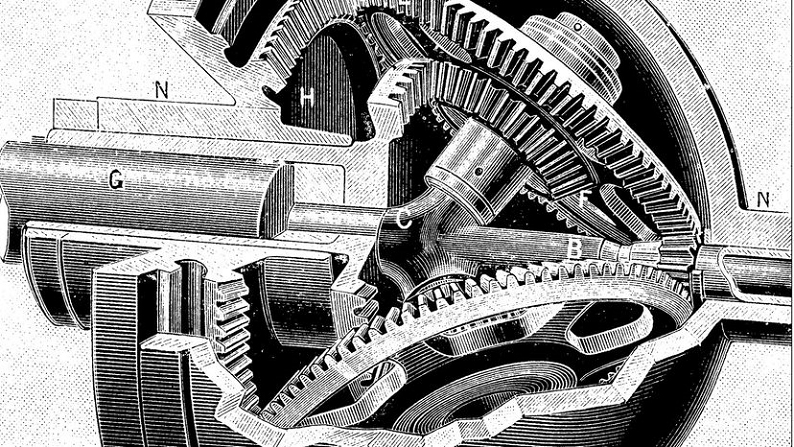
Torque Converter Clutch Wear
The automatic transmission has many clutches throughout the assembly. The torque converter clutch is responsible for locking the engine and transmission in direct drive. If the torque converter burns out due to overheating, stalls / locks due to deformation, or if contaminants in transmission fluid damage friction material, your car can stay in gear even if stopped. If the friction material on the clutch disc wears away, the torque converter can also shake without locking up in the direct drive.
Torque Converter Clutch Solenoid Valve Failure
The torque converter clutch solenoid valve adjusts the amount of transmission oil received by the torque converter lockup clutch. If the electronic device cannot accurately measure fluid pressure, the lockup clutch will not function properly due to too little or too little fluid supply. This can lead to loss of direct drive function, low fuel consumption and engine shutdown.
Will a faulty torque converter damage the gearbox?
A faulty torque converter can cause the gearbox to overheat, which can cause significant internal damage. More importantly, debris from a faulty converter can cause problems running throughout the transmission.
Can the torque converter be repaired?
Although there is a company that specializes in overhauling torque converters, this practice is very rare. Few repair shops will try to rebuild the torque converter; replacement is usually the only option.
Can the torque converter be replaced without removing the gearbox?
No. The gearbox must be removed to access and replace the torque converter.
Will a faulty torque converter throw out codes?
Most of the codes related to the torque converter are related to the torque converter clutch. Other problems with the converter are unlikely to set the code.
